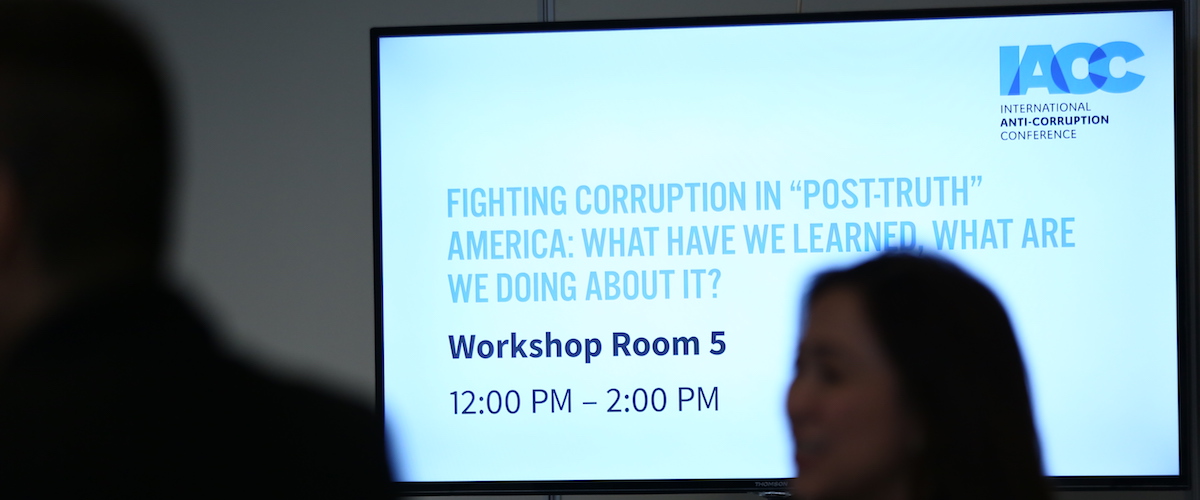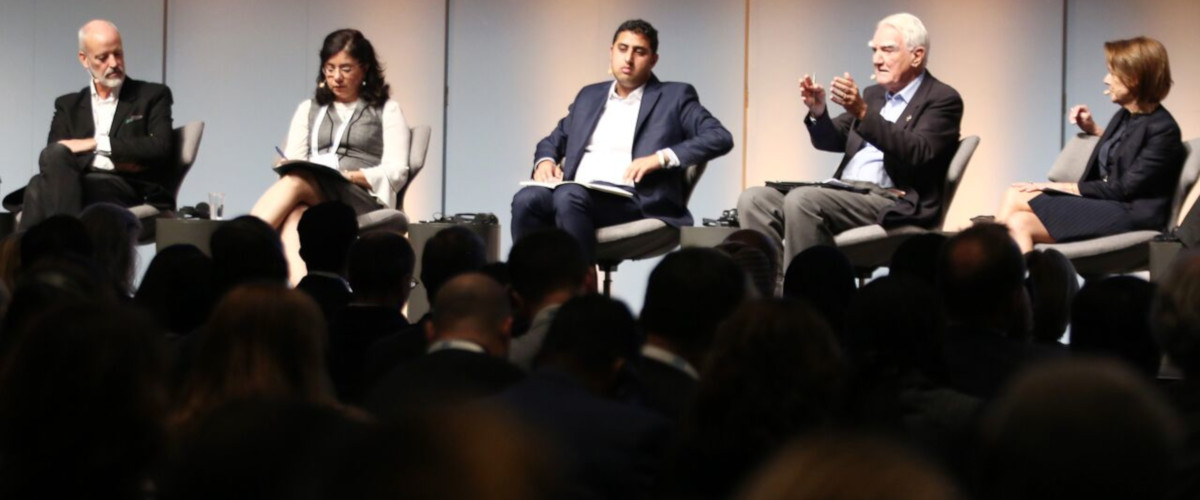
Ever since the word post-truth was chosen as the Oxford Dictionary’s word of the year in 2016, it has gained currency in the context of the United Kingdom’s Brexit referendum, the United States presidential elections, and the current political atmosphere in America.
A panel of experts familiar with the political climate in America sat down to discuss how to fight corruption in post-truth America at the International Anti-Corruption Conference in Copenhagen. Here are five takeaways from their discussion:
- Opening the panel, Renaldo Pearson, a leader of the Democracy Spring movement, cited his famous seven deadly sins of American democracy as the key issues facing the country, particularly in the post-truth era. These are voter suppression, voter erasure, felon disenfranchisement, the corrupting influence of big money in politics, gerrymandering, vulnerable voting systems and the electoral college.
- Using examples from the Trump administration, Danielle Brian, the Executive Director of the Project On Government Oversight (POGO), cited the “use of public office for private gain” and the financial interests of those leading the anti-immigration rhetoric in America while investing in the jails where migrants are kept, as some of the most overt forms of corruption presently taking place there.
- “People affected by high-level corruption react by going to extremes,” said Sarah Chayes, author of Thieves of State: Why Corruption Threatens Global Security. Chayes, a former senior fellow in Carnegie’s Democracy, Conflict, and Governance programme, explained how kleptocratic networks are configured differently based on the environments in which they operate. Using her work on global corruption as a background, she considered the current political climate in America as a crowning example of a kleptocracy network in action.
- “The positive reinforcement of kleptocracy by the United States is significant. It is being actively exported by other kleptocracy networks in places such as Brazil and Honduras,” explained Sarah Chayes. She further stressed how corrupt networks use identity divides as an incredibly effective tactic to drive corruption.
- In closing, participants emphasised the need to be mindful of how corruption is playing out in the current political climate in America. Suggestions on how to deal with the situation ranged from “getting the diagnosis right,” to valuing the role of “investigation and oversight” in corrupt systems.


